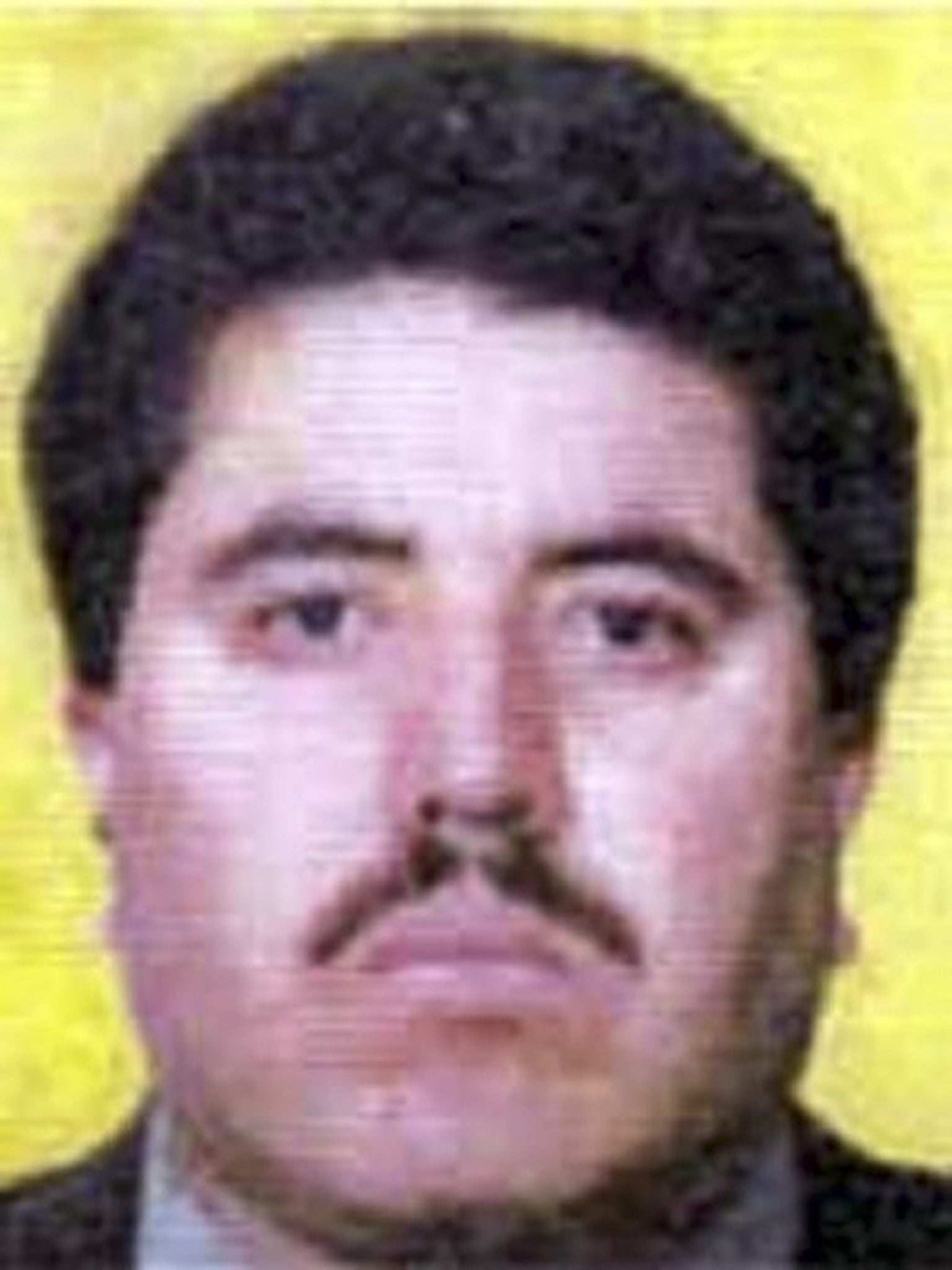Juarez drug cartel boss Carrillo Fuentes arrested in northern Mexico
The 51-year-old oversaw the bloody war over trafficking routes with rivals from the Sinaloa cartel that cost at least 8,000 lives

Your support helps us to tell the story
From reproductive rights to climate change to Big Tech, The Independent is on the ground when the story is developing. Whether it's investigating the financials of Elon Musk's pro-Trump PAC or producing our latest documentary, 'The A Word', which shines a light on the American women fighting for reproductive rights, we know how important it is to parse out the facts from the messaging.
At such a critical moment in US history, we need reporters on the ground. Your donation allows us to keep sending journalists to speak to both sides of the story.
The Independent is trusted by Americans across the entire political spectrum. And unlike many other quality news outlets, we choose not to lock Americans out of our reporting and analysis with paywalls. We believe quality journalism should be available to everyone, paid for by those who can afford it.
Your support makes all the difference.The alleged leader of the Juarez drug cartel, Vicente Carrillo Fuentes, has been arrested in the northern Mexican city of Torreon, two officials have said.
Carrillo Fuentes, 51, heads the cartel founded by his late brother, Amado Carrillo Fuentes, and Mexico had offered a reward of 30 million pesos (£1.4 million) for his arrest.
It was the second capture of a major drug lord in as many weeks. Mexican authorities nabbed Hector Beltran Leyva as he ate fish tacos in a seafood restaurant in central Mexico on 1 October.
The two officials who revealed the information about Carrillo Fuentes' arrest insisted on speaking anonymously because they were not authorised to speak to the press.
Carrillo Fuentes, better known as “The Viceroy” or “The General,” took over control of the Juarez drug cartel after his brother Amado, nicknamed “The Lord of the Skies,” died in 1997 in after botched cosmetic surgery. Amado got his nickname by flying planeloads of drugs into the United States.
Vicente carried on trafficking on a more modest scale, but in a much more violent era for the cartel. Based in the border city of Ciudad Juarez, Carrillo Fuentes led the gang in a battle for control of the area's trafficking routes with interlopers from the Sinaloa cartel, engaging in a multi-year war that cost at least 8,000 lives. The area is estimated to be the route of passage for as much as 70 per cent of the cocaine entering the United States.
Carrillo Fuentes, who like many top drug lords was from Sinaloa state, had a $5 million reward on his head from US authorities, and a similar bounty of about $2 million was offered by Mexican prosecutors for information leading to his capture.
Immediately after his brother's death, there were doubts among cartel members about Carrillo Fuentes' ability to lead, according to a profile provided to the Associated Press by the Mexican Attorney General's Office.
“He was not believed to possess the leadership and decision-making skills,” according to the document, noting this created internal tensions in the group.
In the end, he was able to consolidate what the profile called “an iron grip” on the cartel, while leading it in new directions. As demand for cocaine declined in the US, the gang took to selling more of it in Mexico.
“He overcame the initial perceptions about his personality,” the document said.
Carrillo Fuentes was also known for establishing a series of shifting alliances that seldom worked out for long.
He initially allied his cartel with the Sinaloa Cartel, Mexico's most powerful drug gang. But that alliance fell apart following the 2004 killing of another brother, Rodolfo Carrillo Fuentes, in Sinaloa. That killing was reportedly ordered by Joaquin “El Chapo” Guzman, the top Sinaloa drug lord. In revenge, Carrillo Fuentes allegedly ordered the killing of Guzman's brother in a prison a few months later.
From that point on, the Sinaloa and Juarez cartels became locked in Mexico's bloodiest turf battle.
That in turn led Carrillo Fuentes to establish another alliance of convenience with Sinaloa's rivals, the Beltran Leyva cartel, and the Zetas, the most ruthless Mexican gang.
Carrillo Fuentes was allegedly protected by an “extremely violent” group of former soldiers, and the Juarez cartel pioneered the use of targeted car-bomb attacks on police.
AP
Join our commenting forum
Join thought-provoking conversations, follow other Independent readers and see their replies
Comments